Practical infos
PRACTICAL INFORS
Prepare my trip to Morocco:
Visa and formalities:
The visa is not necessary for nationals of the European Community. In this case, the tourist stay is limited to 3 months. It is necessary to have a valid passport at least until the planned date of return. Non-resident tourists can export without formality and without limitation of value the products purchased locally (keep the invoice to justify the local purchase).
Assurances
We do not cover repatriation, medical & assistance insurance. Remember to subscribe to it before your arrival in Morocco if your usual insurance and/or credit card does not cover it. Possibility to subscribe online AVI Backpacker Insurance: https://www.avi-international.com/assurance-voyage/assurance-routard (code for a preferential rate, ask us). AVA health card: https://www.ava.fr/assurance-voyage/ava-carte-sante/ (code for a preferential rate, ask us)
Vaccination
No vaccinations are required for travelers from Europe.
Exchange, credit card:
Exchange: There are exchange offices in airports, in some hotels and in banks. Bank card: Most banks in large cities are equipped with ATMs. Most purchases are made in cash
Telecommunications:
We recommend that you put your phone in airplane mode and use WIFI when possible. The mobile phone works well in Morocco even in small villages and it is not expensive; to take full advantage of it (4G, or telephone calls), we recommend using a Moroccan SIM card.
Security
Morocco is a safe destination. Tourists (and the many Europeans who live there) are completely safe there.
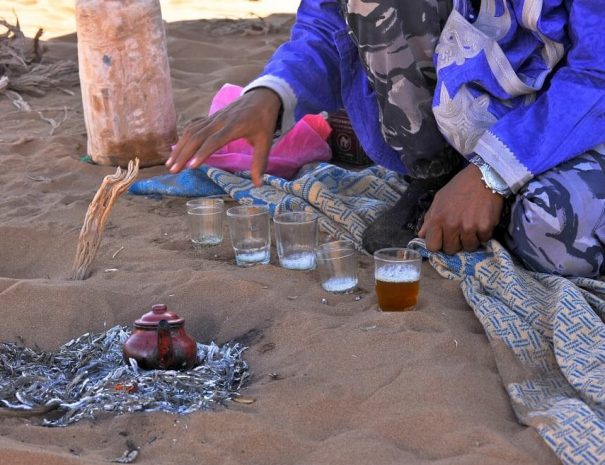
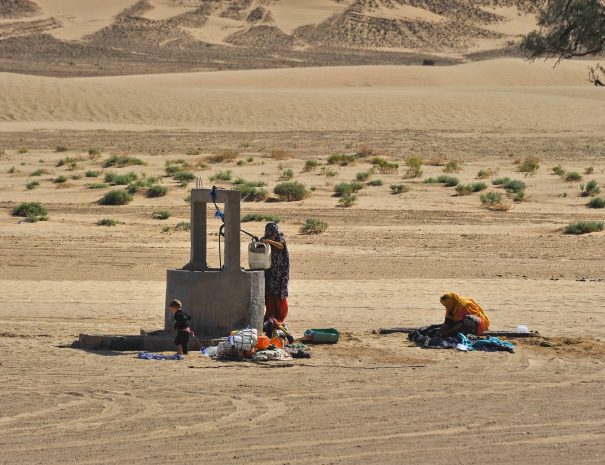
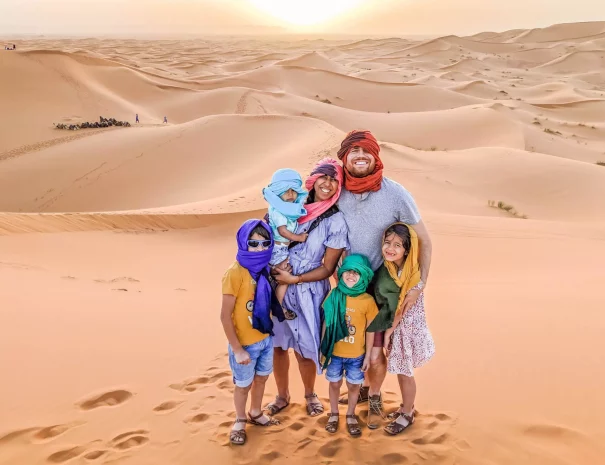

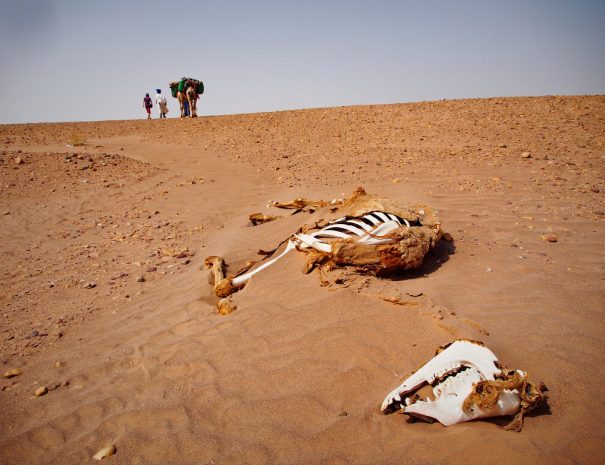
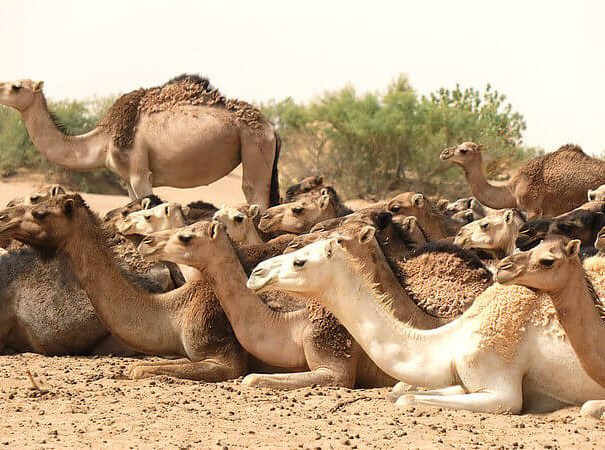
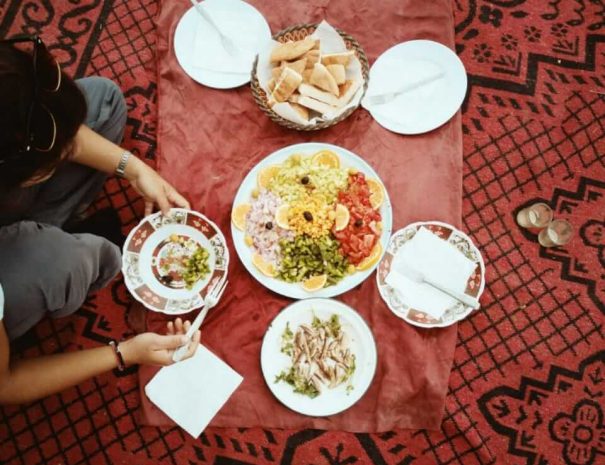
Equipment for my desert trek
You need two bags: Backpack : Each hiker carries his backpack (light, up to 32L) with his necessary things for the day (water bottle, sunscreen, camera, etc.). Travel bag: For the rest of your personal belongings, transported by camels. We recommend a big bag but no suitcase for treks (more practical to load on camels). Below is the list of recommended equipment for the trek: A pair of shoes for walking, preferably light and high, sandals as a second choice. For fragile feet, we recommend the use of gaiters to prevent the entry of sand. A good sleeping bag (–5 to 0 in December – February). Headlamp. A large water bottle (1.5 L). The personal pharmacy kit, to warn your guide on the first day in case you use a special treatment. Sunglasses. Chach (turban), we usually stop on the way to buy it; cap or hat. Sunscreen (prefer long clothes). Lightweight long-sleeved shirts for walking. Lightweight, hiking, walking pants. Fleece jacket and waterproof jacket. Hat and gloves, tights, (December-February). Pairs of socks. Toilet paper and a lighter (to burn the paper). Walking sticks (optional). Plastic bag for the protection of your camera. A waterproof pocket for important documents For family treks with children, do not hesitate to bring pocket games, reading material... Wet wipes for your toilets or horsehair glove: in the absence of a shower, rubbing "dry" with a horsehair glove also allows deep cleaning. Hot water bottle (optional): to accompany the cool to cold nights of December, January and February, a hot water bottle may be welcome (keep the water for the following evening or night). NB: Fragile belongings and clothes that you will not need in the desert can be left at the Riad in Marrakech or Ouarzazat, depending on our starting point.
